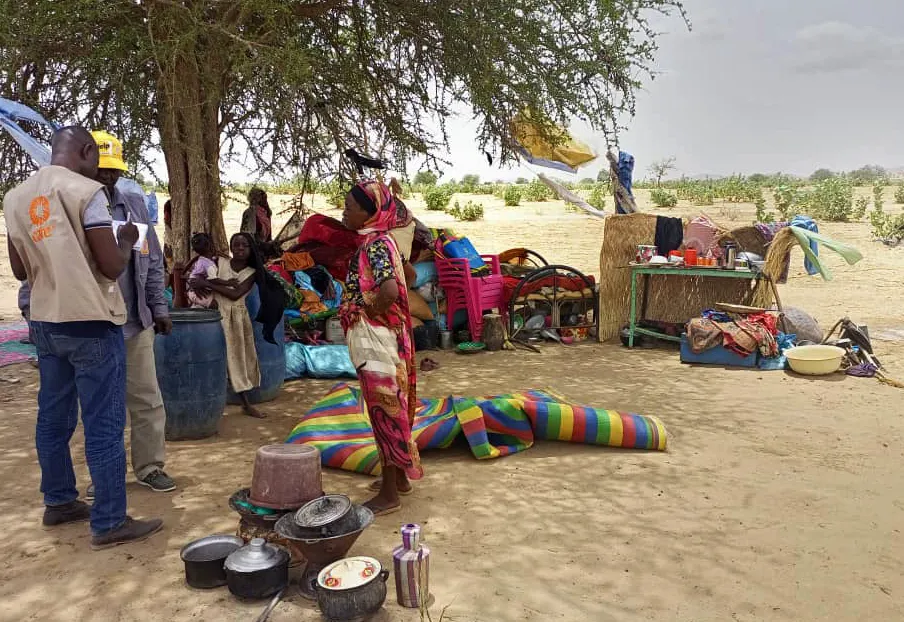Statement by David MacDonald, CARE Sudan Country Director
July 24, 2023 – “The conflict in Sudan enters its 100th day today, July 24, 2023. The crisis, which began on April 15, has led to widespread violence resulting in death, destruction, and displacement. More than 2.4 million people have been displaced within Sudan, and more than 730,000 have fled to neighboring countries. Over 3 million children are estimated to be acutely malnourished, with over 621,000 facing severe acute malnutrition. Women continue to face an increased risk of attacks and sexual and gender-based violence due to the protracted fighting. Millions of people require food, water, shelter, healthcare, and other essential services.
Humanitarian actors are working as best as they can to reach those in need, but the challenges are huge. Many agencies’ offices and warehouses continue to be looted and safe access for humanitarian workers to reach those in most need remains difficult. Humanitarian workers put their lives on the line daily as they move across the country, delivering much-needed aid to communities.
CARE calls for action in three key areas: First, the cessation of hostilities to ensure protection and preservation of lives. Second, the creation of safe passage to allow the supply of basic goods and services to communities. Third, an upscaling of funding is required to meet the needs that grow with each passing day. The world cannot afford to look away from the worsening situation in Sudan as it has the potential to destabilize the entire region.”
For media inquiries, please contact David Mutua, CARE East Central, & Southern Africa Regional Communications Advisor, via: david.mutua@care.org
or Anisa Husain, CARE US Press Officer via: anisa.husain@care.org
Note to editors:
- CARE operations continue in East Darfur, Gadarif, Kasala, and South Kordofan. Support in healthcare and nutrition, water distribution, and construction of sanitation units in the four regions has so far reached 200,000 people.
- A recent Rapid Gender Analysis by CARE found that women are going hungrier than men. 42% of female-headed households are food insecure, compared with 31% of male-headed households. Food intake was also 10% lower in female-headed households than in male-headed households.
- Access to health care services has been fraught with challenges due to ongoing conflicts as armed groups have been attacking, looting, and damaging facilities since mid-April and rapidly depleting medical supplies. Attacks on health facilities put additional strain on a sector that was already struggling to put together a comprehensive package on reproductive healthcare.
- The prevalence of gender-based violence rises during times of conflict as safety nets for women and girls, including the rule of law, are severely compromised and even severed. Gender-based violence is widespread; however, it is often shrouded by a culture of shame and impunity and thus remains underreported.
- CARE in Chad is supporting refugees in various refugee camps on the Chad-Sudan Border.

